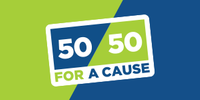As most Canadian residents know by now, the Federal Government introduced a bill to legalize cannabis in Canada starting next year. There are many concerns on how it will be sold and distributed, as well as how law enforcement will be dealing with a number of different situations involving legalization. To go along with those questions comes one of the most crucial of them all. How will police detect drivers under the influence of marijuana?
The federal and provincial governments have been working closely with police forces across the country to come up with the best solution possible on how to identify drug impaired drivers. Over 50 officers from police departments in Vancouver, Toronto, Halifax, Gatineau, the Ontario Provincial Police and RCMP in Yellowknife and North Battleford were involved in the pilot project using oral fluid screening devices. Over 1,140 saliva samples were collected between December 2016 and March 2017, with most reviews coming back positive.
"As we know, legalization for marijuana is well on its way for next year and the police have to look at methods in detecting impaired drivers," explained Estevan's Police Chief Paul Ladouceur. "This is certainly going to help the police detect drivers who are impaired by not only marijuana, but cocaine and other drugs that would effect sobriety when driving a motor vehicle," he shared when talking about the new saliva testing tool.
While most reviews from police came back positive, it still is a work in progress.
"The way of which they work and the ease of operation has been positive but one of the biggest challenges is that these pieces of equipment come from a warmer climate so they had to be tested in Canada to ensure they work in temperatures well below zero."
Once the tests are submitted and the results are forwarded to the government, a decision will be made on what type of device will be considered an approved screening tool.
"There has to be a method for police to adequately test for sobriety on our road ways, and the government is very cognizant of this. They are taking a very serious look and approach to what type of devices police will be able to use."
When speaking about the new devices police will receive, Ladouceur also had a reminder for those currently choosing to drive under the influence of drugs.
"Keeping in mind that we do have methods now of testing for drivers who may be under the influence of drugs. It comes down to drug recognition experts who are highly trained and can do field tests to determine if someone is under the influence of drugs. It would thereby give them the grounds to do a blood sample to test further if drugs are in their system or not," he concluded.
The new testing devices will certainly lighten the load and provide a simpler format for police to do a quick analysis.













